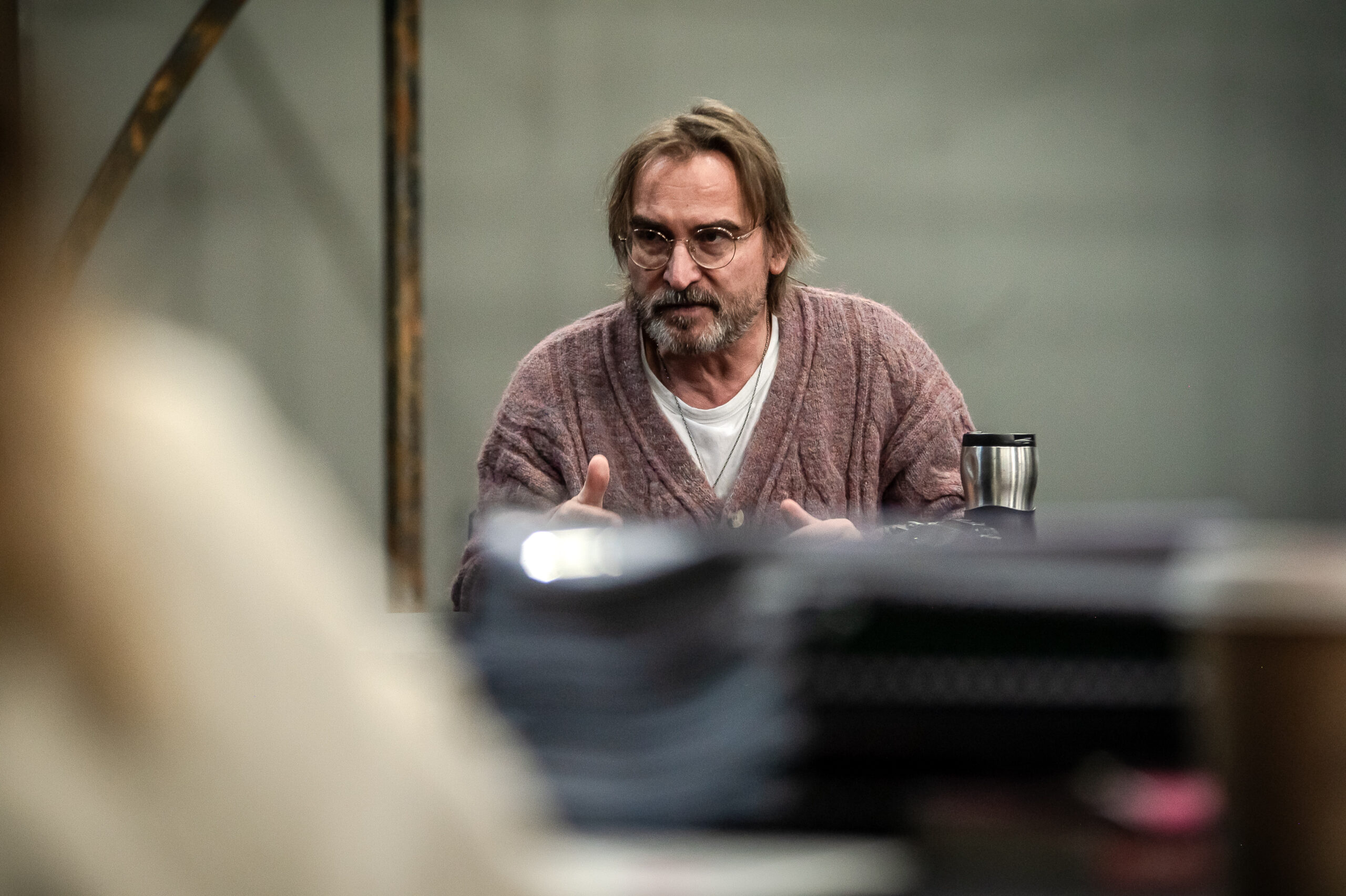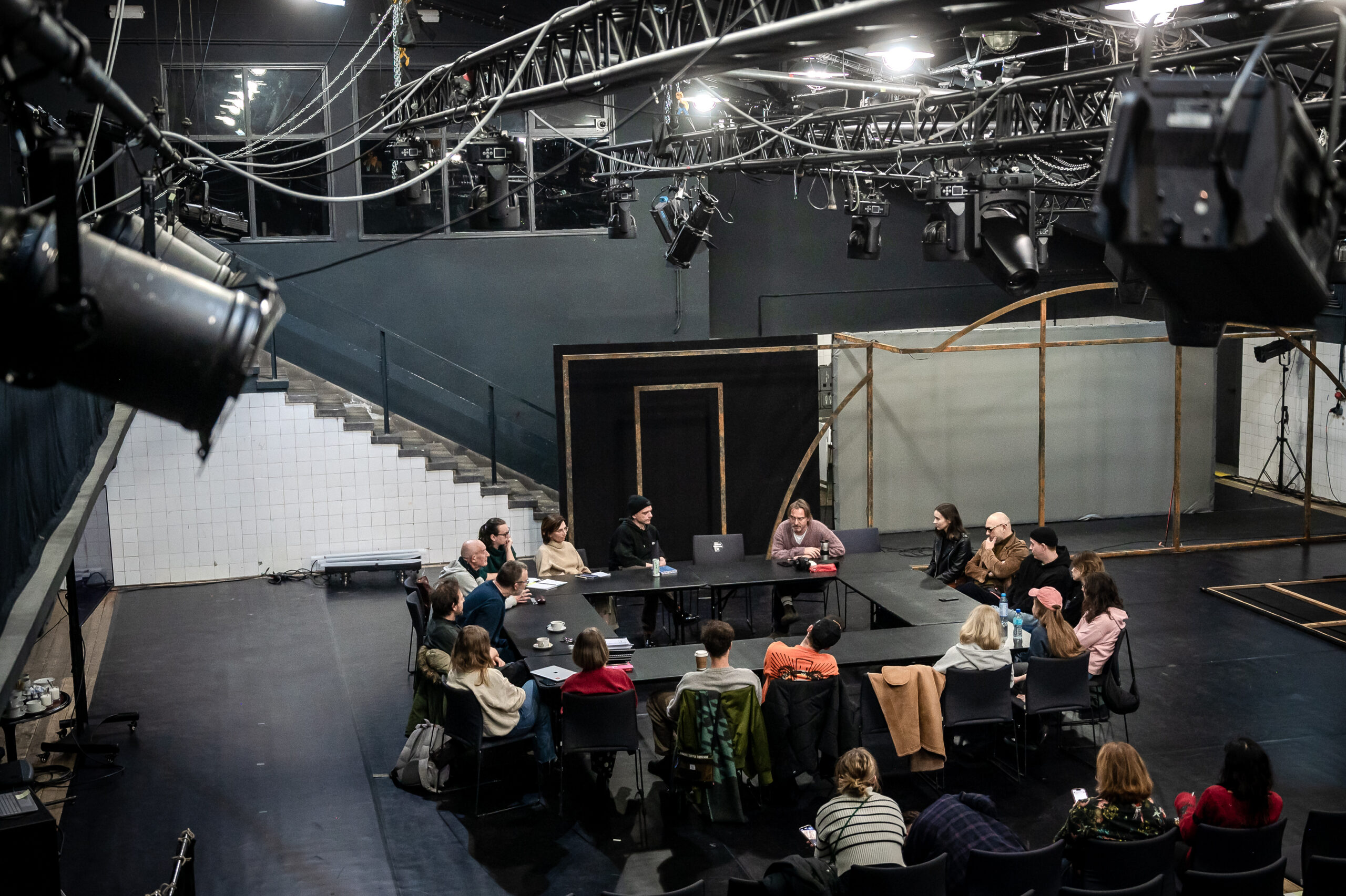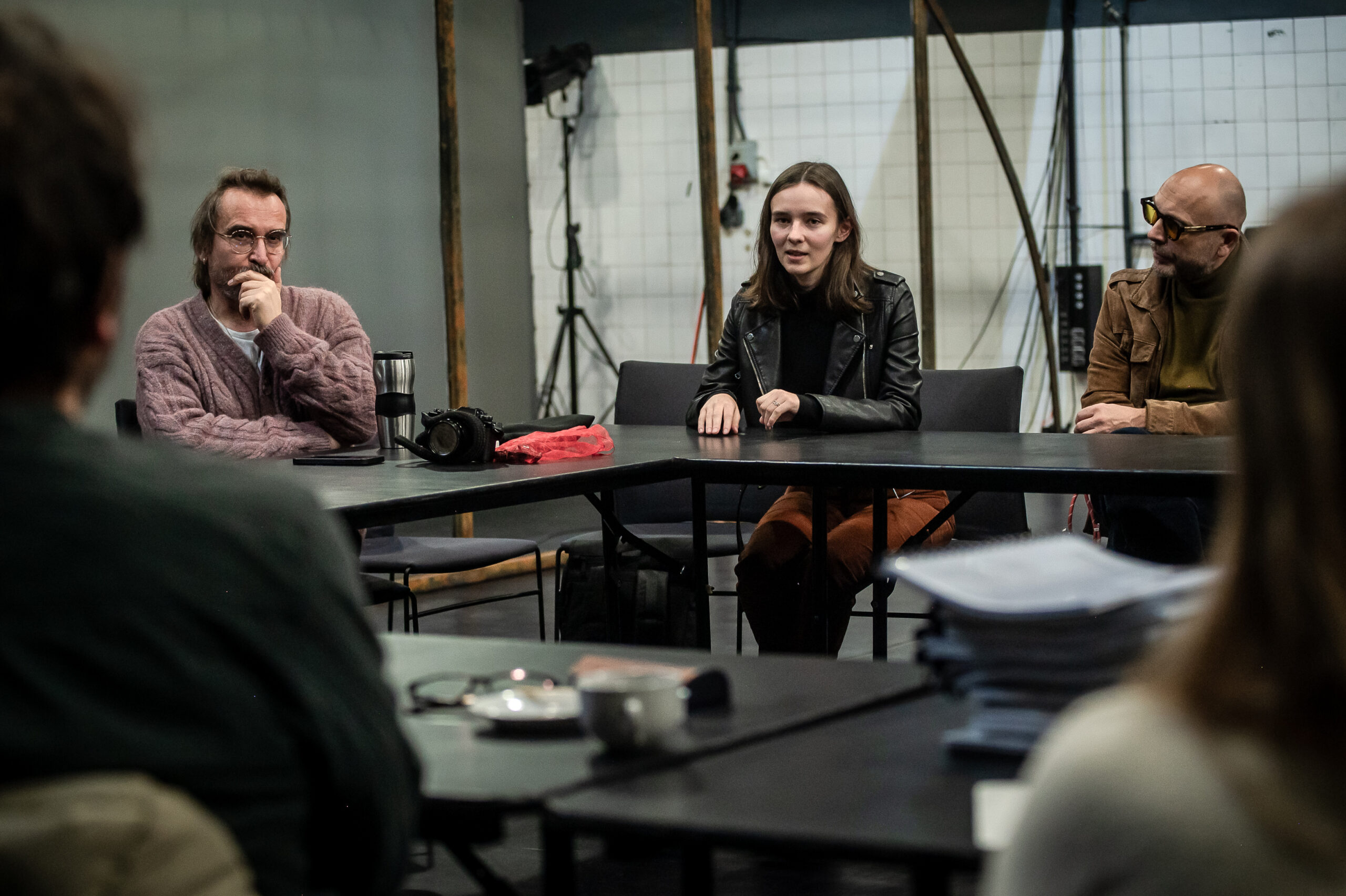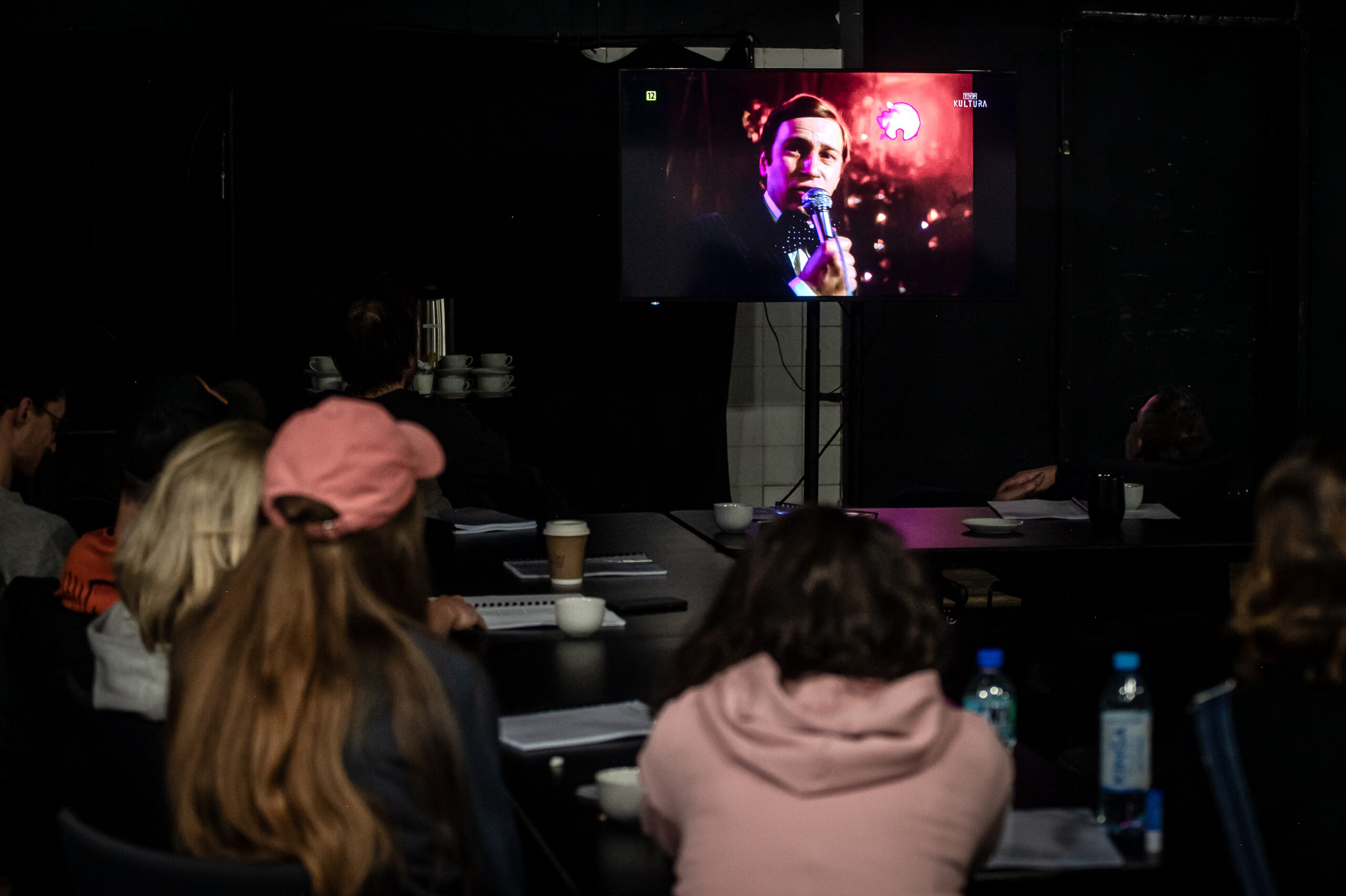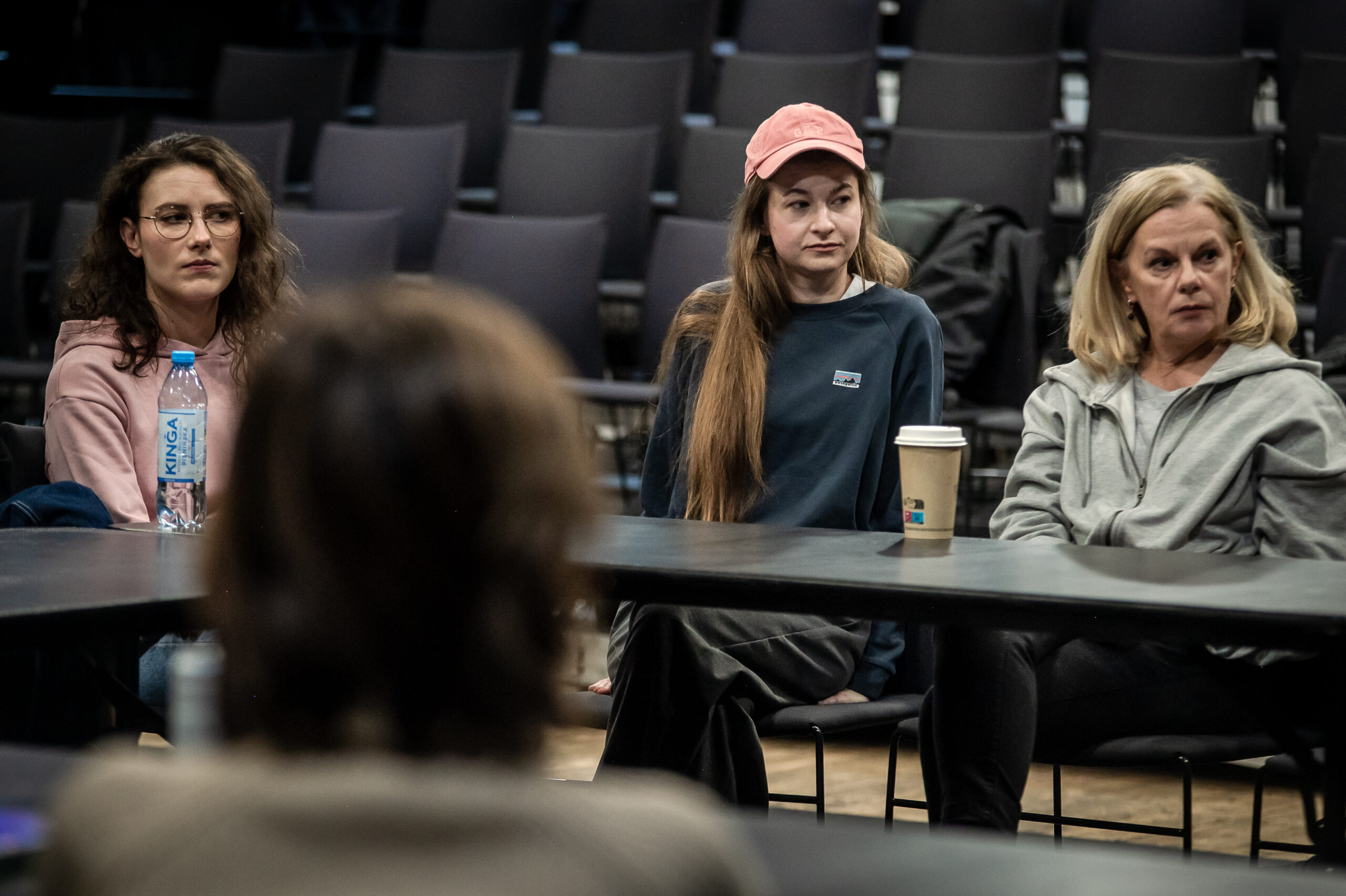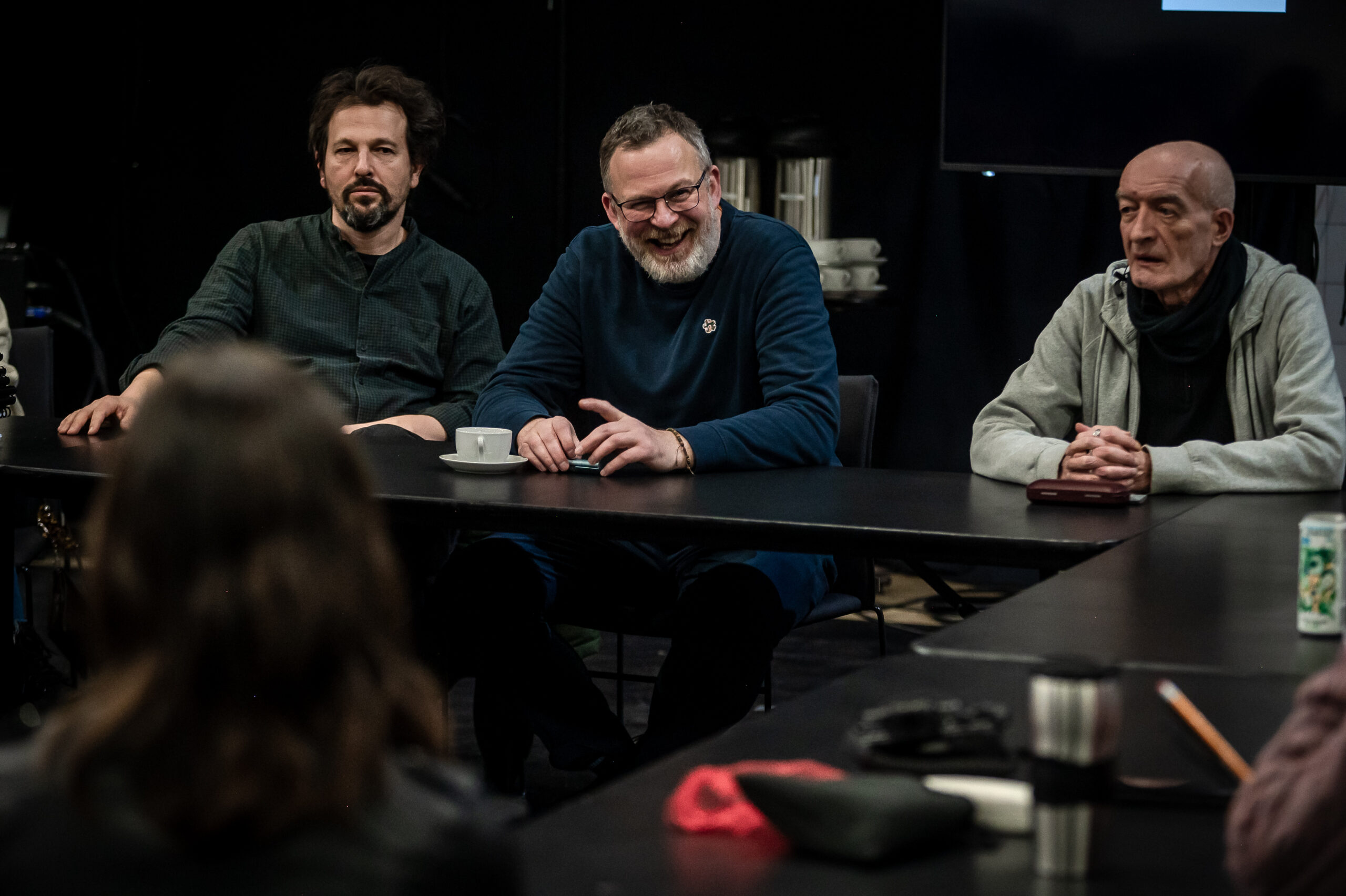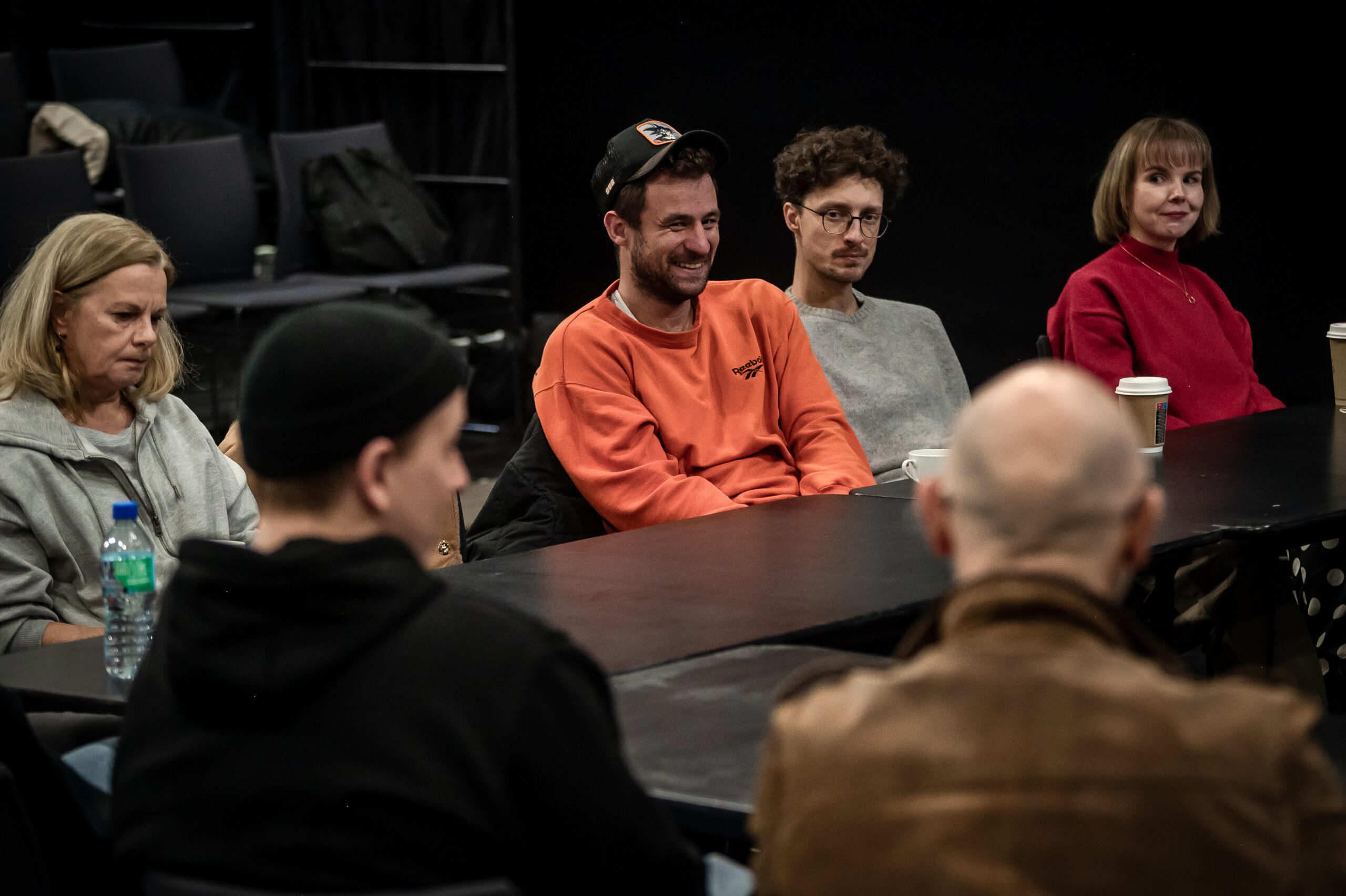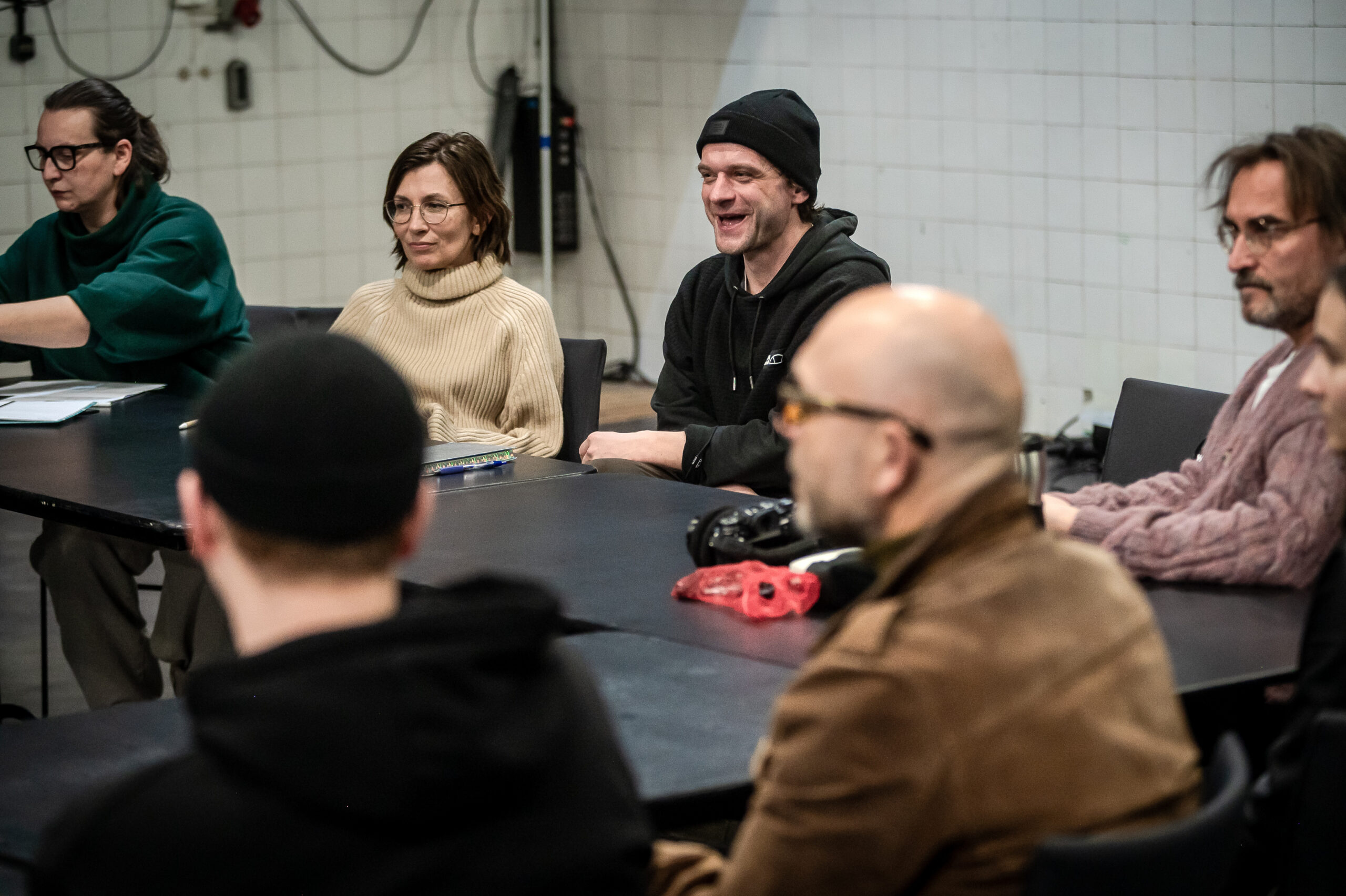
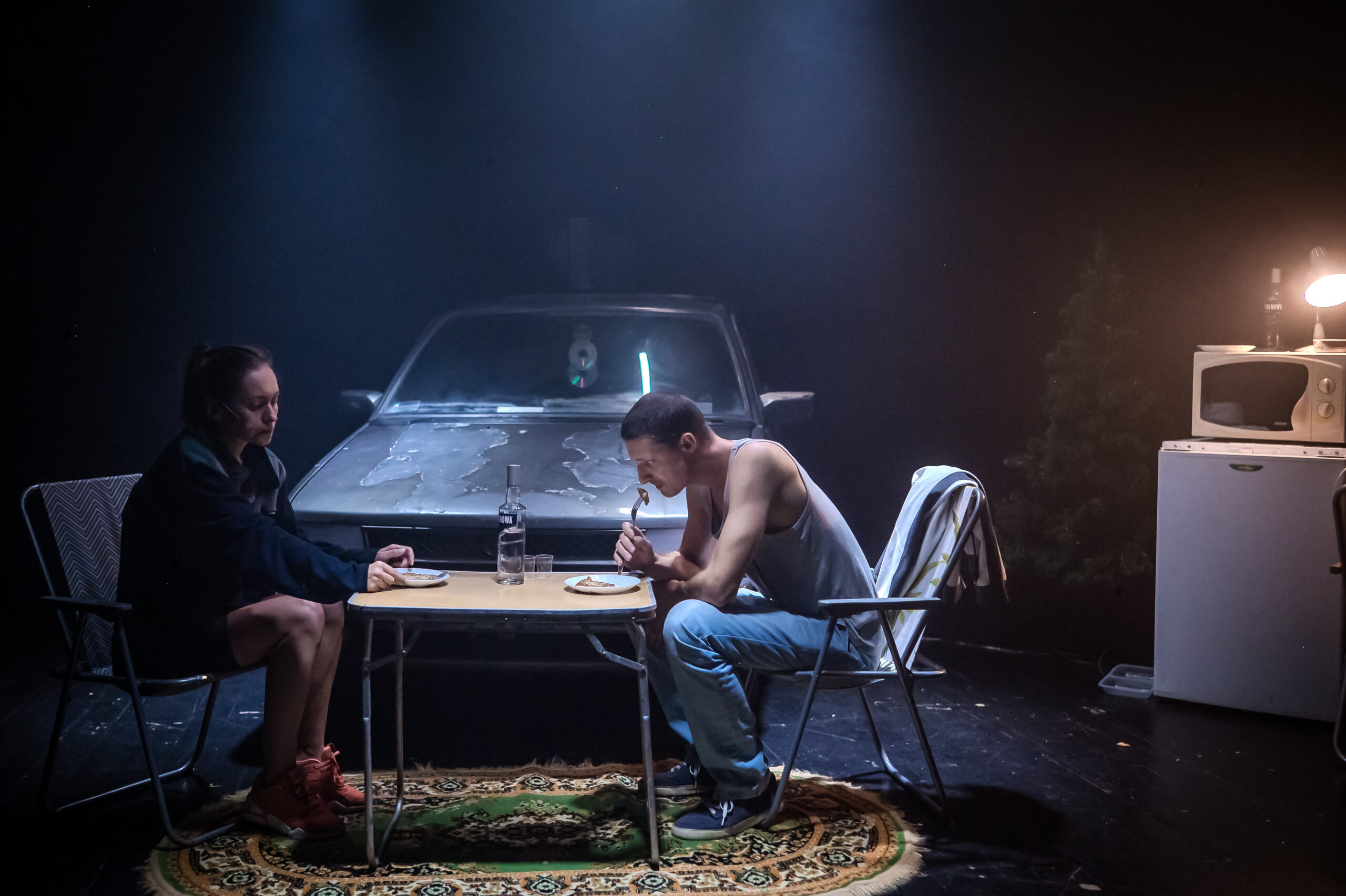
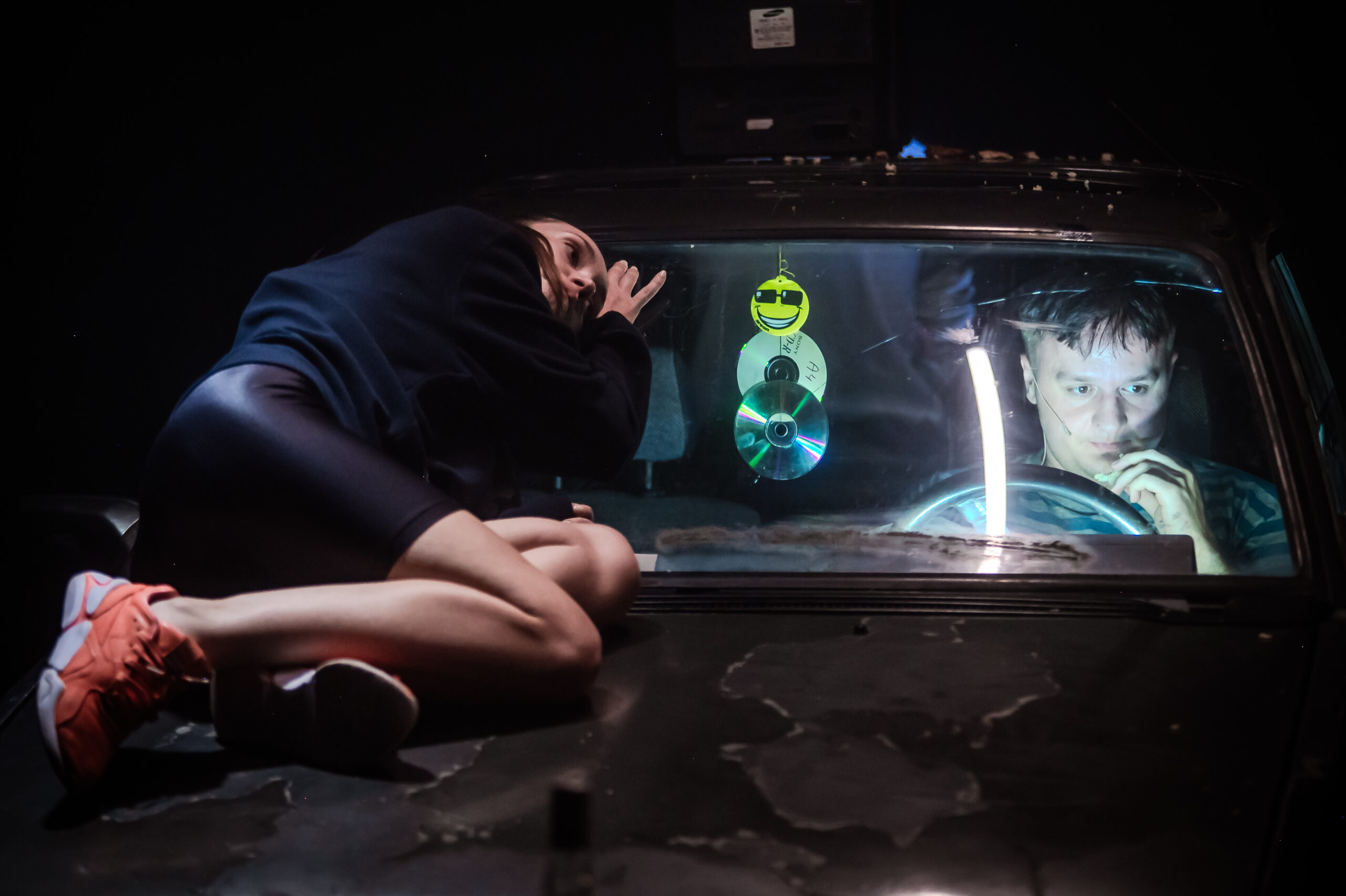
photo: Michał Grocholski
William Shakespeare
The Taming of the Shrew
your name is Kasia
just Kasia
“The Taming of the Shrew” directed by Ewa Platt is far from a triumph of the subdued woman or a farce about social conventions. Shakespeare’s text is filtered here through the lens of contemporary experiences of violence – violence that does not need physical force to take control of a person and carve out a comfortable place in our everyday lives. It is a story about living within mechanisms of oppression that do not operate loudly, yet act with devastating effectiveness.
After leaving her family home, Katarzyna finds herself in the apartment of Petrukio – a man who gradually strips her of autonomy, cuts her off from the world, and destroys her through manipulation, financial dependence, and emotional blackmail.
This performance does not reconstruct Shakespeare’s classic comedy but instead uses its framework to speak about domestic violence in its silent, overlooked dimension – justified, laughed off, and silenced. “The Taming of the Shrew” here becomes a story of harm that finds no listener, of love that turns into a tool of domination, and of a world that teaches us how not to hear.
The performance was developed in our theatre as a “work in progress” within the framework of the Shakespeare Festival in Gdańsk.
[...] Minkowska z wyczuciem komponuje emocjonalną amplitudę spektaklu, w której jest miejsce na gorycz, śmiech, ale też wzruszenie, które pojawia się w najmniej oczywistych sytuacjach [...].
Magdalena Piekarska, festiwalszekspirowski.pl
Premiera
25 PAŹDZIERNIKA 2025 R.
Stage
BUNKER
suggested age
16+
WROCŁAWSKI TEATR PANTOMIMY
im. henryka tomaszewskiego
duration
60 mins (no interval)
Spektakl grany jest w języku polskim, słowackim i niemieckim, z napisami.
Please note: the performance contains vulgar language, violence, nudity and an intimate scene.
upcoming events
22.02 / sunday
6.00 pM
21.03 / saturday
7.00 pM
22.03 / sunday
7.00 pM
27.03 / friday
6.00 pM
15.04 / Wednesday
6.00 pM
16.04 / thursday
6.00 pM
„(…) potrafi rozśmieszyć, a nieraz też skłonić do refleksji. Działa jak dobrze skrojone kino gatunkowe, z rozwiązaniami z którymi teatr, moim zdaniem, mógłby częściej eksperymentować”.
Henryk Mazurkiewicz, teatralny.pl
„(…) potrafi rozśmieszyć, a nieraz też skłonić do refleksji. Działa jak dobrze skrojone kino gatunkowe, z rozwiązaniami z którymi teatr, moim zdaniem, mógłby częściej eksperymentować”.
Henryk Mazurkiewicz, teatralny.pl
„(…) potrafi rozśmieszyć, a nieraz też skłonić do refleksji. Działa jak dobrze skrojone kino gatunkowe, z rozwiązaniami z którymi teatr, moim zdaniem, mógłby częściej eksperymentować”.
Henryk Mazurkiewicz, teatralny.pl
The Taming of the Shrew ceases to be a comedy and becomes a story about how relationships founded on fascination can evolve into a struggle for power. Platt observes this dynamic up close, rejecting theatrical ornamentation in favor of the quiet, everyday language of oppression.
Wiesław Kowalski, Teatr dla wszystkich
Awarded the New Yorick – a distinction for emerging artists – for her production of The Taming of the Shrew, Ewa Platt relocates Shakespeare’s play from the world of Renaissance Italian patricians in Padua to the realities of small-town Poland. Her Petruchio is a boy from the provinces – a streetwise hustler in a tank top, pouring his chosen partner one vodka shot after another, while subjecting her to psychological and economic abuse. Most of the action unfolds inside the man’s old car – a vehicle that, though parked on stage, would hardly qualify for any clean transport zone.
Witold Mrozek, Gazeta Wyborcza
This is a thoughtfully interpreted reading of Shakespeare’s well-known and popular comedy. The director found inspiration in the story of the headstrong Kasia, whom Petruchio slowly “tames” and accustoms to a submissive married life – except that, in this version, Kasia is not headstrong at all. On the contrary, she is a frightened and intimidated young woman, sadistically dominated by Petruchio, who claims to care for her well-being. It is bullying and psychological torture in its cruellest form, masked by a facade of concern for his partner. The director has trimmed Shakespeare’s text but has preserved its essential meanings.
Alina Kiertys, AICT Polska
festivals and awards
29th International Shakespeare Festival
• NEW YORICK
„Direction, acting, and stage design create a promising framework (…), allowing the story of Katarzyna and Petruchio to be seen as a contemporary portrayal of domestic violence.”
• Journalists’ Award
„For the unexpected reinterpretation of key sequences of Shakespeare’s comedy as a depiction of contemporary violence—moving and free of demagoguery.”
creators

Concept & Direction
Ewa Platt

Set & Lighting Design
Anna Rogóż

Soundtrack
Kamil Białaszek

Scenografia
Piotr Michalski
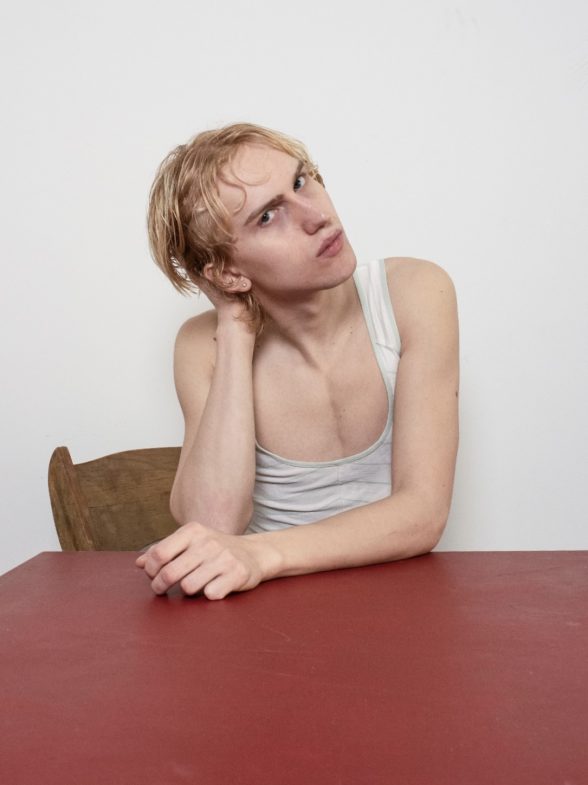
Reżyseria światła
Oksana Pawełko

Choreografia
Katarzyna Sikora

Kostiumy
Lila Dziedzic
Stage Coordinator
Urszula Kraska
Translation
Jerzy S. Sito

Reżyseria świateł
Klaudyna Schubert

Materiał video
Edgar de Poray
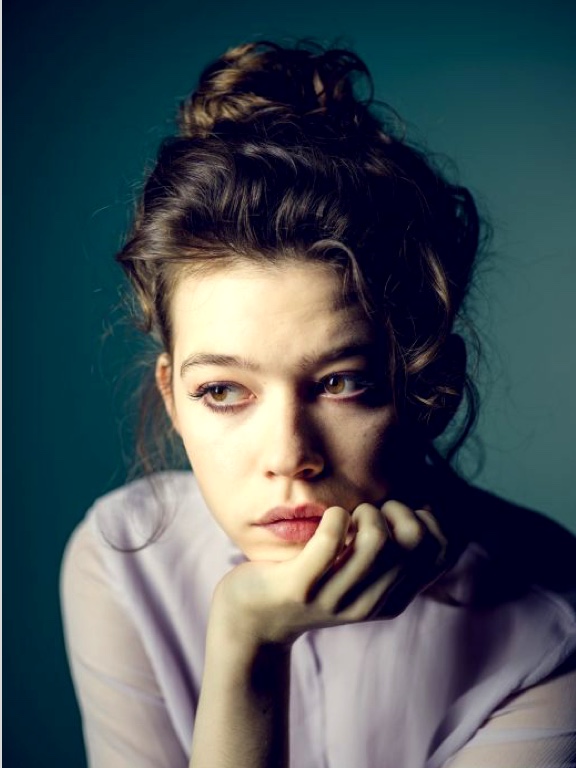
Reżyseria
Radosław Stępień

Scenografia i dramaturgia
Konrad Hetel

Kostiumy
Łukasz Mleczak
Operatorka kamery
Emilia Cięciwa
Asystent operatora kamery
Laurence M. Trottier
Tłumaczenie scenariusza
Olga Aleksandra Stawińska
Tłumaczenie na próbach
Juliusz Pielichowski
Inspicjentka (Opole)
Urszula Kraska
Inspicjentka (Trnawa)
Barbora Hadraba
Cast
x
Maciej Czerklański (guest-starred)
KONKURSY
Spektakl „Sztuka kochania” został przyjęty do IX Konkursu na Inscenizację Dawnych Dzieł Literatury Polskiej „Klasyka żywa”.

Kliknij ![]() aby włączyć tryb pełnoekranowy
aby włączyć tryb pełnoekranowy












